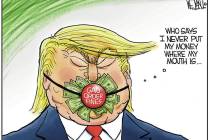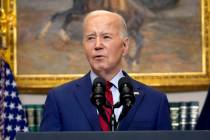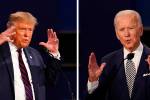Foul-mouthed Big Bird?
The U.S. Supreme Court heard arguments Tuesday on whether the First Amendment's free-speech protections apply to television shows children might be watching.
The case, Federal Communications Commission vs. Fox Television Stations, centers on regulators' ability to fine broadcasters for including "fleeting expletives" -- impulsive swear words -- in their programming. A narrower issue for the court is whether the FCC acted capriciously in 2004 by changing its policy regarding indecent language.
The FCC once looked the other way when the occasional curse found its way into the airwaves, so long as it didn't reference explicitly sexual activity. But when celebrities used the "F-bomb" during a pair of 2003 award shows that were broadcast live, federal overseers suddenly decided any use of the word was inherently sexual and therefore unacceptable. Regulators began threatening fines of as much as $325,000.
Chief Justice John Roberts and Justice Antonin Scalia seemed sympathetic to the argument that even fleeting expletives have a "coarsening" effect that can damage "impressionable children."
"Why do you think the F-word has shocking value?" Chief Justice Roberts asked rhetorically. "It's because it's associated with sexual or excretory activity; that's what gives it its force."
Other justices were more skeptical of the FCC's arguments that tougher decency standards are needed to protect children. Justice John Paul Stevens said "you can't help but laugh" at the delivery of some swear words, and noted that the F-word is often "used with no reference to sexual connotations."
A shrill Solicitor General Gregory Garre, representing the FCC, was adamant that a ruling in favor of Fox would open the floodgates to obscenity and indecency on television, with "Big Bird dropping the F-bomb on 'Sesame Street.' "
Oh, please. Is the court -- and the public -- to believe that children's television producers are eagerly awaiting the green light to turn beloved, fuzzy characters into gangsta rappers?
Mr. Garre's ridiculous leap reveals the absurdity of the FCC's arguments. The FCC's policy is about power and punishment, not protection. Fundamentally, it is the job of parents to supervise their children's exposure to television and counsel them on whether what they see and hear is appropriate or offensive. No federal bureaucracy can substitute its will and judgment -- especially not one as outdated and heavy-handed as the FCC.
The Supreme Court once again appears divided. Here's hoping a majority of justices issue a clear defense of the First Amendment and order the FCC to stop treating the taxpaying public like babies.























